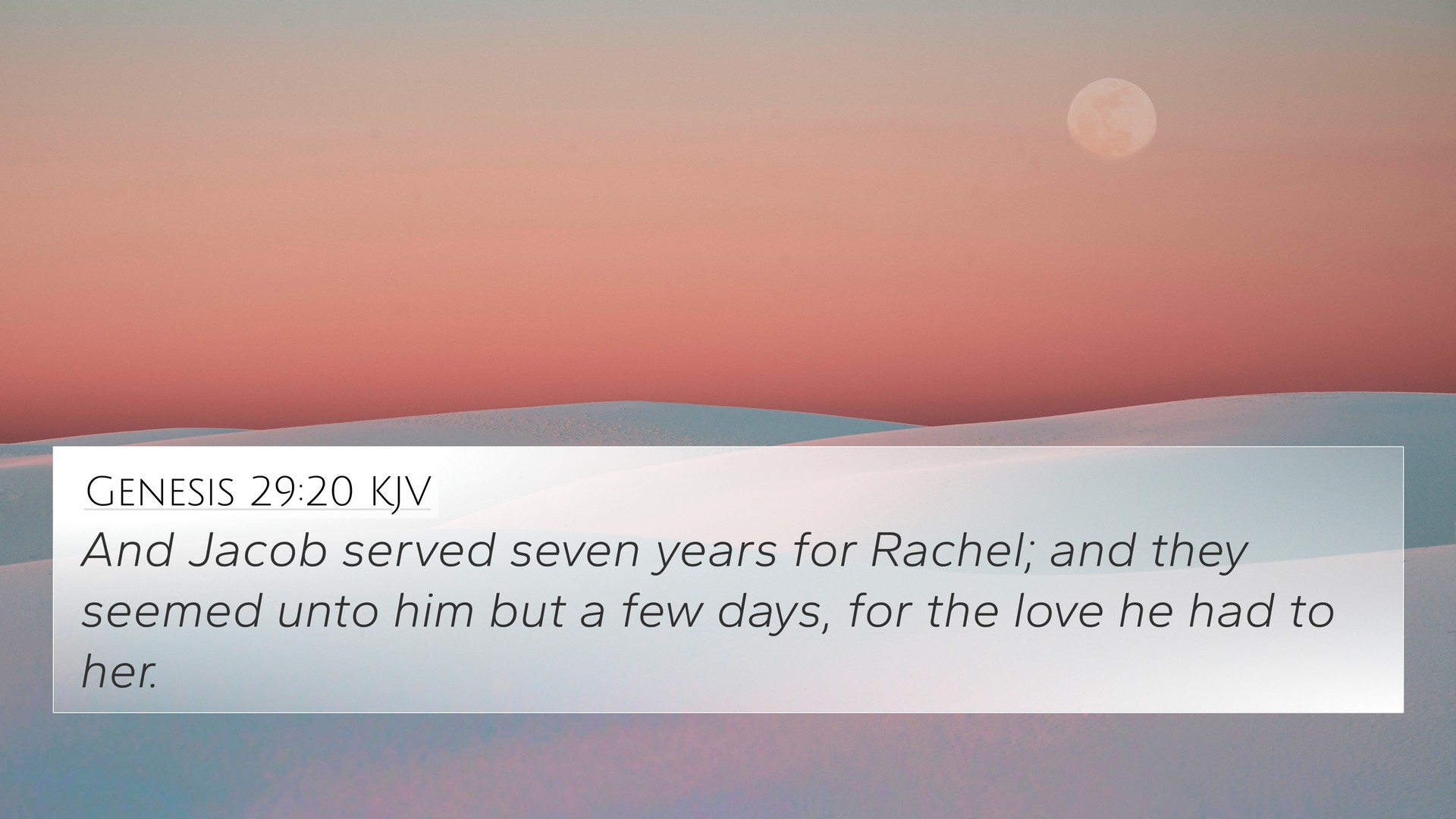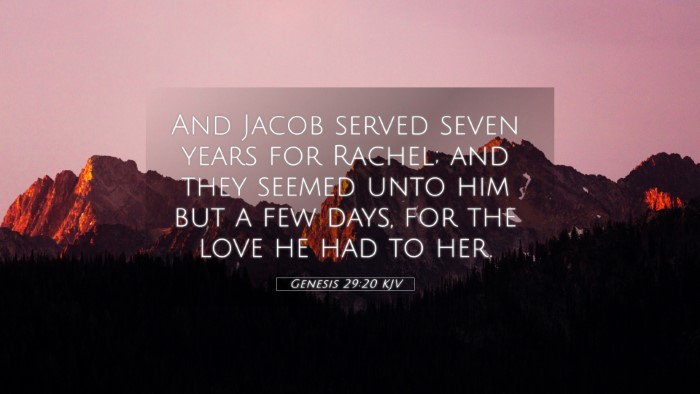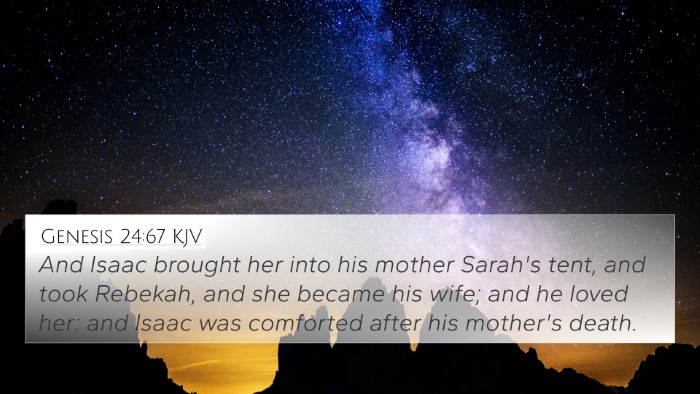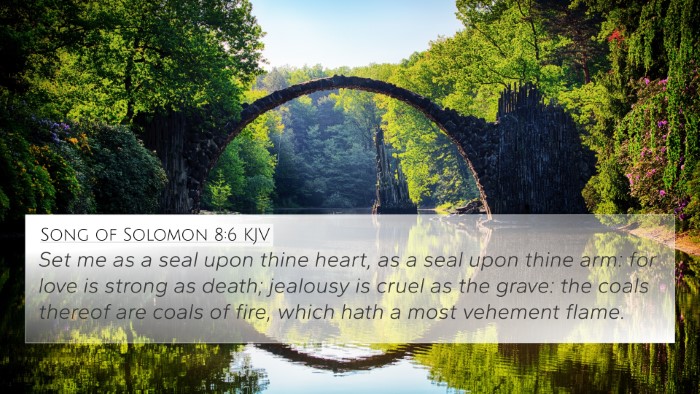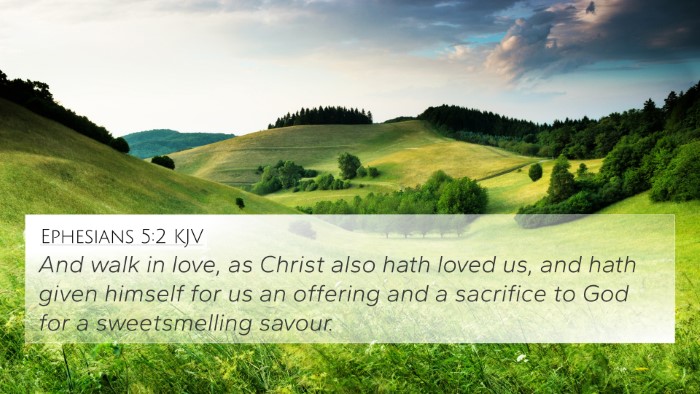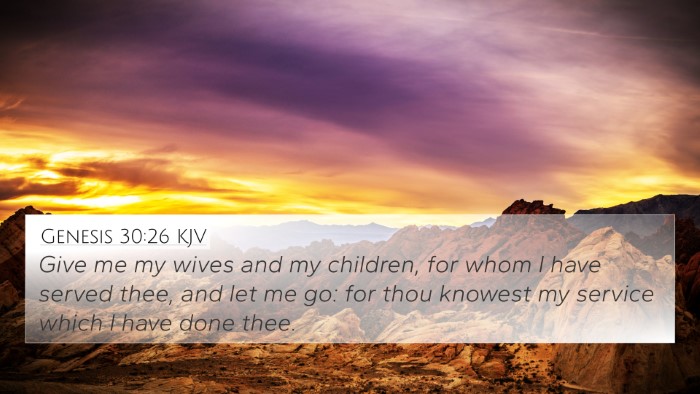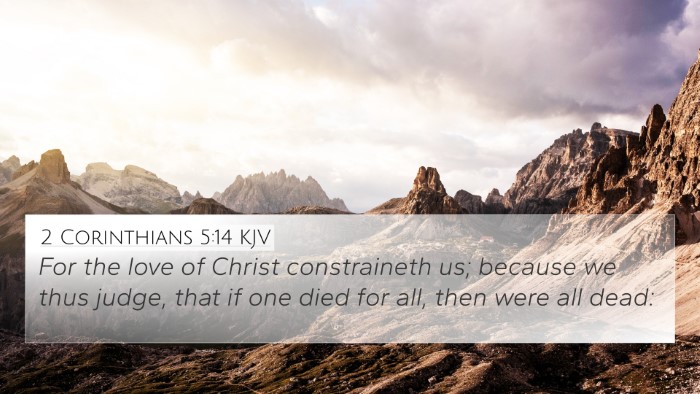Genesis 29:20 Explained
Verse Text: "So Jacob served seven years for Rachel; and they seemed unto him but a few days, for the love he had to her."
Overview and Context
Genesis 29:20 narrates Jacob’s deep affection for Rachel and how this love motivated him to work for seven years to earn her hand in marriage. This verse reflects the themes of love, sacrifice, and the dedication that often accompanies true affection.
Insights from Commentaries
-
Matthew Henry:
Henry emphasizes the extraordinary nature of Jacob's love for Rachel. He notes that the seven years of labor were not burdensome to Jacob because they were motivated by love, highlighting how true love can transform toil into joy. He illustrates that Jacob's willingness to endure hardship for Rachel reflects the intense nature of love that can make time feel insignificant.
-
Albert Barnes:
Barnes elaborates on the value of Jacob's service, stating it was a demonstration of his commitment. He notes that the phrase "seemed unto him but a few days" signifies a joyous anticipation rather than a mere emotional state, suggesting that true love is patient and enduring, a quality that resonates throughout Biblical narratives.
-
Adam Clarke:
Clarke examines the context of Jacob's labor, interpreting it as a reflection of the covenantal commitment that characterizes relationships in the Bible. He presents Jacob as a type of Christ, who also sacrificed for His beloved (the Church), drawing parallels between this sacrifice and the more profound theological implications found throughout Scripture.
Bible Verse Cross-References
This verse has several cross-references that contribute to a deeper understanding:
- Philippians 1:3-5: Paul expresses love and joy in the partnership of the gospel, akin to Jacob’s joy in working for Rachel.
- Song of Solomon 8:6-7: This passage reflects the all-consuming nature of love, comparable to Jacob's experience.
- 1 Corinthians 13:4-7: Here we find a definition of love that resonates with Jacob's patience and commitment.
- 2 Corinthians 11:2: Paul speaks of an apostolic jealousy for believers, mirroring Jacob’s protective love for Rachel.
- Luke 14:28: Jesus speaks about the cost of discipleship, similar to Jacob evaluating the value of his labor for love.
- Ephesians 5:25: This verse links love with sacrifice, paralleling Jacob's willingness to work hard for Rachel.
- Romans 8:28: God works all things for good, reflecting how Jacob’s labor ultimately led to God’s purpose being fulfilled in the lineage of Christ.
- Matthew 19:6: This verse reinforces the permanence of marital commitment, relating to Jacob's intention to marry Rachel.
- Genesis 24:58: This highlights the hand of God in marriage arrangements, much like Jacob's pursuit of Rachel.
- Genesis 30:1: This sets the stage for the dynamics within Jacob's family, deepening the narrative begun in 29:20.
Thematic Connections
The themes surrounding Genesis 29:20 connect with countless other scriptures, illustrating the power of love, commitment, and the transformative nature of relationships within the Bible. Jacob's labor is more than just a transaction; it embodies the idea of love as a willing sacrifice.
Practical Applications
For those studying Genesis 29:20, consider the following applications:
- Evaluate your own commitments: Reflect on the sacrifices made for love in your life.
- Recognize the joys of labor: Identify how love can change perspectives on work and effort.
- Consider love's value: Assess how love motivates your decisions and actions in everyday life.
- Engage in Biblical reflection: Use this verse as a springboard to explore themes of commitment and love throughout the scriptures.
- Cross-reference with other texts: Utilize tools for Bible cross-referencing to deepen your understanding of love in the Bible, such as Bible reference resources and concordances.
Conclusion
Genesis 29:20 is a rich verse that provides insight into the nature of love and commitment. By understanding this passage through the lenses of various commentaries and connecting it with related scriptures, a clearer image of Biblical love emerges—one of sacrifice, joy, and deep relational commitment. Such reflections are crucial for anyone looking to enhance their study of scripture, discover thematic connections, and engage in inter-Biblical dialogue.
